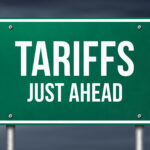June 2023: Threat of Recession Still Looms

Is the worst over for the financial markets? As you recall, 2022 was a year marked by steep declines across both the equity and bond markets. Bonds, which are typically used as a “safe haven”, had their biggest drawdown since 1786. The S&P 500 declined over 18% for the same period. High inflation and aggressive rate hikes combined with tightening monetary policy led to decreased economic growth and steep declines across the broad-based markets. However, since October, we have seen a strong rebound off the bottom. Currently, the biggest debate among financial analysts lies between whether an economic recession is avoidable.
There are three main debates. Those concerned about debt increases, surging interest rates, and a reversal of stimulus believe that a “hard recession” is inevitable. Some see the higher equity prices and believe that “no recession” is likely and earnings will begin to rise again. Finally, some believe there is the possibility of a “soft recession,” where the economy does slow but does NOT lead to a sharp increase in unemployment or a dramatic decline in equity prices.
No one knows which of these will play out as there is fair evidence for each of them. Investors can only take the information available to them and decide how much risk they are willing to take on as a result. I do know that the stock market tends to be forward looking. Technically, markets now have a confirmed breakout from the October lows meaning there is certainly now the possibility of markets going higher. Fundamentally, earnings are expected to grow rapidly through the end of 2023 and break above the 2022 peak. Both are notches in the belt for the bulls in the crowd. However, sticky inflation, high interest rates and threats of economic slowdown still exist and shouldn’t be dismissed.
Bonds have also been the center of discussion lately. After their disastrous performance last year, investors may feel less confident in their ability to be used to decrease portfolio volatility. However, the current environment does give support for bonds to be set up for positive returns. Bonds have an inverse relationship with interest rates. When interest rates are rising, bonds will be affected negatively. An obvious example of this was what happened in 2022. If the Federal Reserve does begin to cut rates later in the year, bond values will go up. Bonds are also significantly oversold, adding to the argument that it may be time to consider adding them back to portfolios soon. In fact, if we do proceed into a recession, bonds have an opportunity to not just act as a hedge in portfolios but could outperform equities by a considerable margin.
For now, we continue to tread cautiously. While we remain fully invested, we are cognizant of the risks that remain, and our portfolios are constructed accordingly. If you have any questions about the current market conditions or would like a second opinion of your current allocations, please give us a call. We are always here to help.
 ASHLEY ROSSER, PRESIDENT
ASHLEY ROSSER, PRESIDENT
Prior to her career in the financial services industry, Ashley earned her Bachelor of Science in Nursing from Cedarville University.
Ashley decided to make a career change from her ten years within the healthcare industry as a pediatric emergency room nurse to retirement and 401K investment planning. She joined Victory Wealth Partners in 2008 after obtaining her Series 65 professional financial license and went on to earn her AIF (Accredited Investment Fiduciary) professional designation from the Center for Fiduciary Studies.












